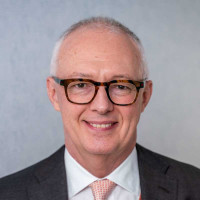
When Katherine Nyholm, 29, crossed the finish line of the 2018 Boston Marathon on April 16, she was greeted by the familiar faces of cheering friends. She finished the race at three hours and 24 minutes, 26 seconds faster than her last marathon.
“The last few miles, your legs get pounded over and over again, the hill felt like a knife as you go up, but then once I got to Kenmore Square, I had my friends cheering me on. I was passing a bunch of people that last mile. On one hand, I wanted to finish as quickly as I could. But I was thinking how over the past few months I would imagine what it would be like on race day, and it was very rewarding to finish,” she tells The Blossom.

It was a big deal because only one week earlier, she was hospitalized, unsure if she would even be able to race. It all started when Nyholm logged a 10-mile run. Light work compared to her longer marathon training regimens. She had searing pain. It was an endometriosis flare-up, and Nyholm was hospitalized for two full days.
“I have to give credit to my doctors and clinicians who still encouraged me and wanted to see how my next week went,” Nyholm adds. “It was a very stressful week, obviously. I kept thinking, ‘the timing of this is impossible.’ I didn’t decide until the Friday before the marathon whether I would be dropping out.”
For years, Nyholm, a Boston-area high school teacher, has been running a personal, grueling marathon with endometriosis itself. Nyholm went through a revolving door of specialists and doctors to figure out what was wrong before she was formally diagnosed with Stage II Endometriosis. After what felt like an endless process to find an experienced specialist, the clinicians at Beth Israel Deaconess Medical Center in Boston took over her care.
“Being home the first week after surgery, I felt I lost a bit of my identity, I was not able to run a lot of races or train. I’ve always been a huge athlete and to go from running my whole life to my early-to-mid 20s of really not running races was hard,” Nyholm says.
Just nine months after her last surgery, Nyholm ran her Boston-qualifying marathon this past fall. Wanting to find a way to give back to her caretakers at BIDMC, Nyholm decided to join their marathon team, raising money to support research and women’s healthcare at the hospital’s OB-GYN department. Nyholm is still raising money to hit her $7,500 fundraising finish line.

after finishing the 26.2 miles on April 16
What’s next? She’s looking forward to next year’s marathon. Nyholm qualified and she hopes that she will be running in a better state of health. “I hope it’ll be better so I will have an even more positive experience,” she adds.
What would she like to say to other women who might be intimidated by the toll endometriosis can have on their overall health? What about the woman who doesn’t feel like running a marathon is even possible for her?
“It’s really important for people not to take it personally when they aren’t feeling well, and not have a sense of defeat,” Nyholm emphasizes. “The reality is, there is so little progress that has been made in understanding and treating endometriosis. Relapses and stuff like this are unfortunately going to happen—I’ve been hospitalized twice in the past month!—but you can’t settle for a life that is less active than you would hope for.”
“Our generation will do a better job to push the field forward,” she adds. “It would never be acceptable if this were a men’s health issue to have this little level of understanding. I’m hoping that more women will come forward and really push for this to get better.”
Editor's note: Feeling inspired by Katherine's story? Learn about running the TCS NYC Marathon with EndoFound here









